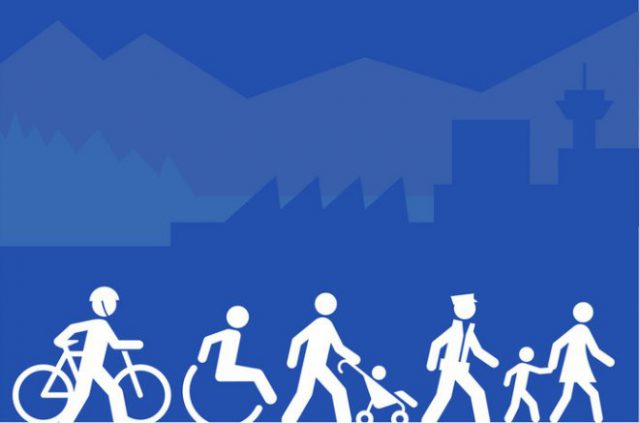Getting to know TransLink – Fearghal and Jacob
Getting to know TransLink – Fearghal and Jacob

This spring, TransLink released its 3rd annual People Report – a publication for us to showcase initiatives that help support and enrich our employees across the TransLink Enterprise.
A few of our nearly 7,000 employees were featured in the report and right here on the Buzzer blog.
Two of those employees are Planning Analyst Jacob Fox and Senior Planner Fearghal King.
They were asked to present their work on driving behaviour and fuel trends to the Revenue and Finance Committee at the Transportation Research Board’s (TRB) annual conference in Washington, DC.
Not only that, but their peer-reviewed paper, Revenue and policy implications from emerging fuel sale trends in Metro Vancouver, was published this year in the Transportation Research Record, the journal of the TRB!
Let’s delve deeper into this project as Jacob and Fearghal tell us a little more about their study and findings.
Tell me about why you focused your study on work on driving behaviour and fuel trends.
As the Regional Transportation Authority, we feel it’s important to have a solid understanding of regional driving behaviour and how that is evolving over time. By analyzing these trends we can begin to explore policy options that help to reduce regional VKT (Vehicle Kilometres Travelled).
On the flip side, TransLink collects $0.17c from every litre of fuel sold in the region. Once again it’s important to understand the sustainability of this revenue source in the presence of improved vehicle fleet efficiency and fuel price competition with the US.
What are some trends that affect fuel sales in our region?
Fuel sales are predominantly impacted by the price of fuel (both here and in the US), the growth rate of auto ownership and the unemployment rate.
What data did you collect and how?
We collected odometer reading data from vehicles which went through the AirCare program from 2000 – 2010, as well as vehicle registration data from ICBC over the same time period.
We also collected data on fuel sales (from Kent Marketing), as well as population and employment densities and transit service hours, among other things.
What were your findings?
The most significant finding which we observed was a decoupling between road usage (measured by VKT trends) and the main source of road user payments (measured by fuel sale trends).
Essentially we witnessed a decline in fuel volume sales, while VKT trends continued at a steady pace. The significance here is that we saw no decline in road usage (suggesting that congestion and road maintenance costs remained problematic), while the main source of revenue from road users – fuel volume sales – did decline.
What are the implications of fuel tax, a formerly steady revenue stream, declining?
The fuel tax is the second largest source of revenue for TransLink (generating about $340 million in 2014).
As long as vehicle fuel efficiency rates continue to improve, and fuel price competition exists between this region and the US, then this revenue source (as it is currently designed) is under threat.
How can your study be used in real world parameters?
This study helps to lend some useful insight and empirical evidence to the ongoing discussions surrounding transportation funding and mobility pricing.
The study paves the way to explore the applicability of more sustainable funding mechanisms (such as distance-based road user charging, for one).
Want to know more about the people who make the transit network tick?
Read the 2015 People Report!
Author: Adrienne Coling





